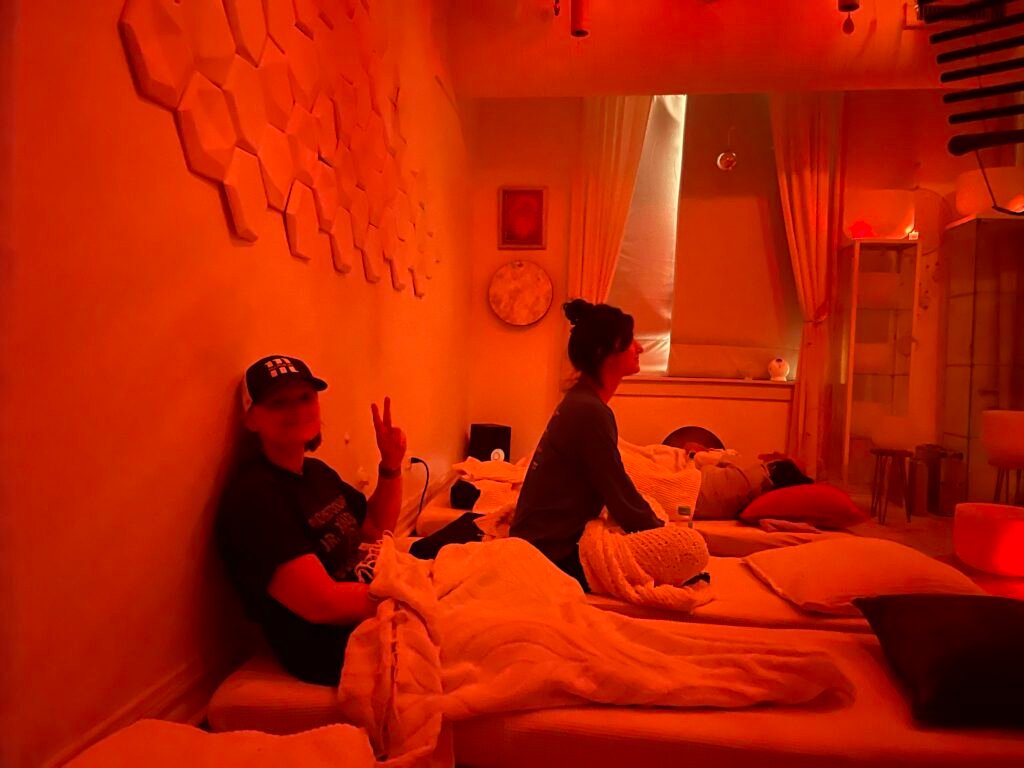Tinnitus affects millions of people worldwide and is often described as a persistent ringing, buzzing, or hissing in the ears. It can range from mild to severe, temporary to permanent, and can be deeply frustrating for those affected. While there is no definitive cure for tinnitus, tinnitus sound therapy has gained traction to manage its symptoms effectively. If you’re struggling with tinnitus, sound therapy may provide much-needed relief by masking the internal noises and reducing their impact on your daily life.
In this article, we’ll explore what tinnitus sound therapy is, how it works, and how it can help manage tinnitus symptoms. We’ll also review various sound therapy methods, their benefits, and offer tips on finding the right one for your needs.
What is Tinnitus?
Before diving into sound therapy, it’s essential to understand what tinnitus is and how it affects individuals. Tinnitus is not a disease, but rather a symptom often linked to hearing loss, ear injuries, or issues with the auditory system. The most common form is subjective tinnitus, meaning only the affected person can hear the sound. Severity varies, with some experiencing a low hum and others a loud ring, either intermittently or constantly.
Common Causes of Tinnitus:
- Hearing loss: Damage to the inner ear from aging or prolonged exposure to loud sounds.
- Ear infections: Middle or inner ear infections can lead to temporary or chronic tinnitus.
- Medications: Certain drugs, such as high doses of aspirin or specific antibiotics, can trigger tinnitus.
- Earwax buildup: Excessive earwax can block ear canals, causing tinnitus.
- Stress and anxiety: High-stress levels can exacerbate tinnitus symptoms.
What is Tinnitus Sound Therapy?
best sound therapy involves using external sounds to reduce the perception of tinnitus. By masking the internal noise (ringing or buzzing) with external sounds, tinnitus becomes less noticeable. These external sounds range from white noise and nature sounds to music or specialized tones specifically designed for tinnitus sufferers.
How Does Tinnitus Sound Therapy Work?
The goal of sound therapy is not to eliminate the internal noise but to make it less noticeable. By playing external sounds, the brain’s focus shifts away from the tinnitus, providing relief. Over time, some individuals even experience habituation, meaning the brain adjusts and “tunes out” the tinnitus entirely.
Key Benefits of Tinnitus Sound Therapy:
- Reduces perception: External sounds mask the internal ringing, offering relief.
- Improves sleep: Tinnitus can disrupt sleep, but sound therapy promotes relaxation and better rest.
- Decreases anxiety: Constant noise can increase stress and anxiety. Sound therapy helps to create a calming environment.
- Enhances concentration: By masking tinnitus, it becomes easier to focus on tasks or conversations.
Types of Tinnitus Sound Therapy
1. White Noise Therapy
White noise therapy uses consistent background sounds, such as static or the hum of a fan, to mask tinnitus frequencies. It is beneficial at night when trying to sleep.
Best for People with mild to moderate tinnitus who need sound masking in quiet environments, particularly at night.
2. Nature Sound Therapy
Nature sounds like rain, ocean waves, or bird songs can effectively mask tinnitus and provide a calming alternative to white noise.
Best for: Those seeking a natural and soothing solution to aid in relaxation or sleep.
3. Music Therapy
Music therapy involves listening to specially designed playlists or ambient music to drown out tinnitus. These playlists are tailored to mask tinnitus frequencies, providing relief while enjoying music.
Best for Individuals who enjoy music and prefer a more engaging sound therapy option.
4. Tinnitus Retraining Therapy (TRT)
TRT combines sound therapy with counseling to help people habituate to their tinnitus. Over time, the brain learns to ignore the sound, making it less intrusive. TRT typically requires working with a trained audiologist and may take months to show results.
Best for Those with chronic or severe tinnitus looking for a long-term solution.
5. Notched Sound Therapy
Notched sound therapy uses sounds adjusted to match the frequency of the individual’s tinnitus, with the specific tinnitus frequency removed. This method helps reduce sensitivity to tinnitus over time.
Best for: People with tonal tinnitus who prefer a targeted approach.
6. Personalized Sound Therapy
Personalized devices offer customized sound profiles tailored to the exact frequency of the person’s tinnitus. These devices provide precise relief by matching external noises to mask the specific internal sound.
Best for Individuals seeking a personalized solution, particularly if other therapies have been ineffective.
How to Choose the Right Tinnitus Sound Therapy
There is no one-size-fits-all solution for managing tinnitus. The best tinnitus sound therapy depends on factors like the severity of your condition when it bothers you most, and your preferences.
Key Considerations:
- Severity: Mild cases may require simple sound masking, while severe tinnitus may benefit from therapies like TRT.
- Environment: For nighttime relief, white noise or nature sounds might help, while music or personalized sound devices may be better for daytime use.
- Accessibility: Many sound therapies are available as smartphone apps, making them convenient, while others may require specialized devices or professional help.
Tinnitus Sound Therapy Apps
Several apps offer Vibration therapy for tinnitus via your smartphone, providing a convenient and cost-effective option for those who don’t want to invest in expensive equipment.
Tips for Maximizing the Benefits of Tinnitus Sound Therapy
- Be consistent: Regular use is key to experiencing improvements.
- Use in quiet environments: Sound therapy is most effective when used in quiet places where tinnitus is more noticeable.
- Pair with relaxation techniques: Combine sound therapy with deep breathing, meditation, or muscle relaxation to further reduce stress.
- Consult a professional: For severe tinnitus, working with an audiologist or therapist can offer more targeted guidance.
Conclusion
Tinnitus sound therapy is a practical, non-invasive way to manage the frustrating symptoms of tinnitus. Providing external sounds to mask the internal noise, it can significantly reduce the perception of tinnitus and improve the quality of life for those affected. Whether you choose white noise, nature sounds, or personalized therapy, consistency is key. If tinnitus is impacting your daily life, consider exploring sound therapy as a way to regain control over your hearing health.
Frequently Asked Questions (FAQs)
1. What is tinnitus sound therapy?
Tinnitus sound therapy is a method of managing tinnitus by using external sounds to mask or reduce the perception of the internal ringing, buzzing, or hissing associated with tinnitus. It helps shift focus away from the tinnitus sound, making it less noticeable.
2. How does tinnitus sound therapy work?
Tinnitus sound therapy works by playing external noises like white noise, nature sounds, or music, which mask the tinnitus sound. Over time, the brain can learn to tune out the tinnitus through habituation, making the internal noise less disruptive.
3. Is tinnitus sound therapy effective?
Tinnitus sound therapy is effective for many people in reducing the perception of tinnitus. While it doesn’t cure the condition, it can significantly improve the quality of life by making the tinnitus sound less noticeable and easier to live with.

